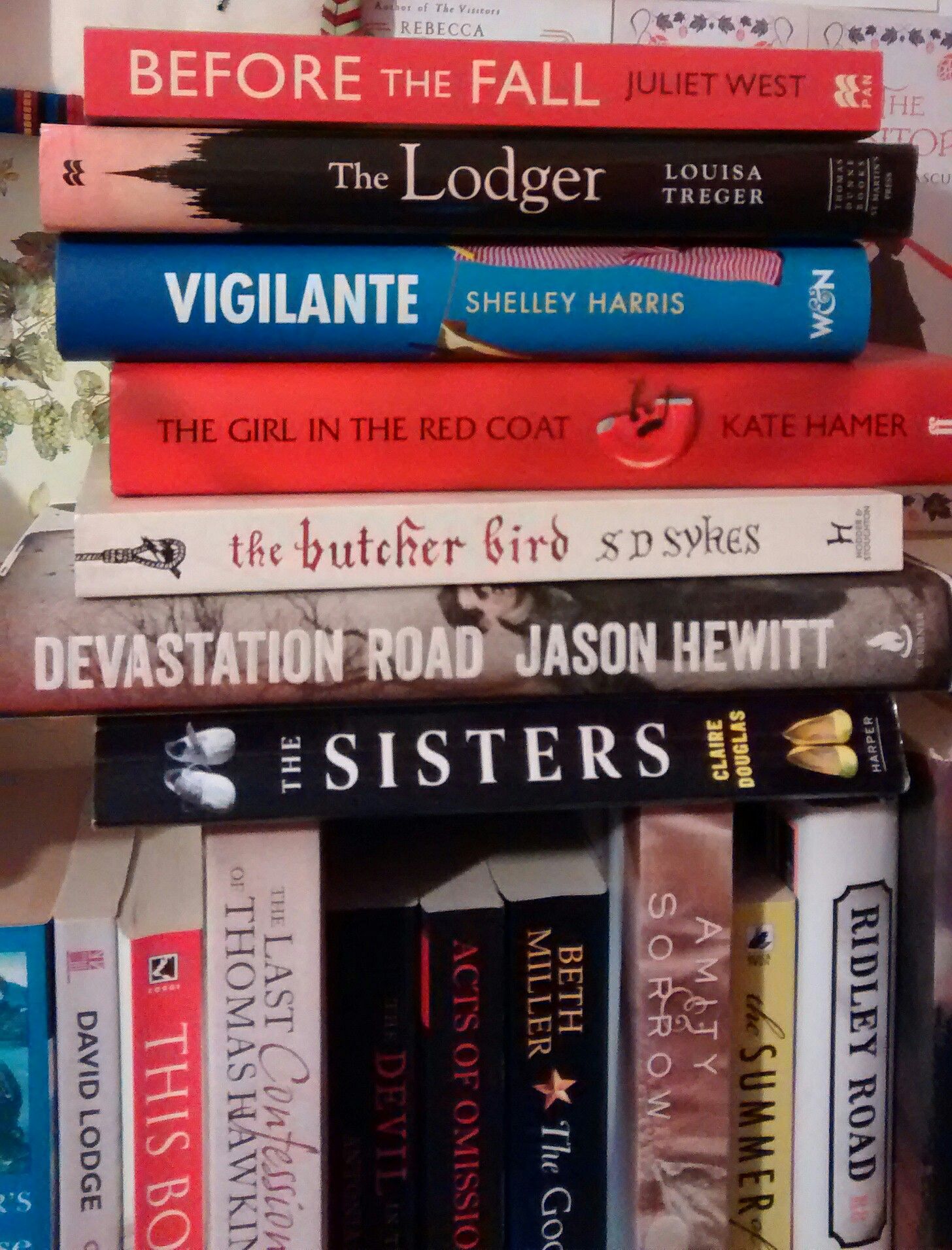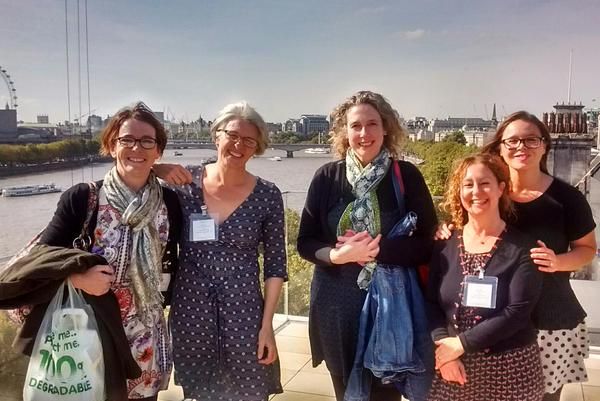
I joined the authors’ collective The Prime Writers in its early days, soon after the call went out on Twitter from founder Antonia Honeywell for those who’d had their first novel commercially published aged forty plus. Within a few months, we went from a lunch to a website and beyond, with lots of new friendships and collaborations made along the way. Several of our members have written about the huge range of advantages of belonging to such a collective and so I’d like to add my two penn’orth and talk about how The Prime Writers have revolutionised my reading habits!
So, my old way of reading was something like this: is it written by Dickens? Is it the long-lost second novel of Emily Bronte? Nope? Well, I might just try it if there’s a new Atwood, McEwan, Proulx? But if not, I might just read some non-fiction or watch a movie then. Obviously, I exaggerate. But I was a bit like my old piano teacher who felt that anything written after Schumann was a bit too modern for her taste. Even Rachmaninoff was beyond the pale. When I got published, nice people in the industry starting sending me books. New fiction? What’s that then? (Again, a slight exaggeration…) I was a bit loath to try something really new, unless a trusted friend or my mum raved about it.
When I joined Twitter soon after, I kept seeing nice, funny writers and their books pop up in my timeline, and then I started to read some of this stuff and it was great. To begin with, I was still keeping more to my tried and tested route of historical fiction, reading Louise Walters, S.D. Sykes, Martine Bailey, Jason Hewitt, Vanessa Lafaye – all wonderful books and right up my usual street. And then I thought to myself, when did I get so set in my ways? In my teens and twenties I read extremely widely – I’d read any genre, any setting, any type of author, I didn’t care, as long as something in the blurb or even just the cover piqued my interest. Then in my thirties I seemed to settle into less adventurous habits. I didn’t have so much time to read, so I had to be choosy, far more choosy and I didn’t have the money to spend on books I might not finish.
So, when I started coming across all these Prime Writer folk, with their shiny brand new books readily dispatched in proof form, or the Australian hardback, or the dog-eared trade paperback that had already done the rounds – when these gems would turn up through my door, I’d open it and find a whole new world. Such a variety of genres, voices, settings from Florida to Montana, Medieval England to post-apocalyptic London, and so on. I found myself reading detective fiction, historical crime, speculative stories, World War II home front, religious cult, domestic dramas, commercial women’s fiction (whatever that really means), YA novels, literary fiction, modern bake-offs and C18th cooks, North Korea and Iraq: you name it, the Primes have got it. I’ve interviewed each Prime Writer on my blog whose book I’ve read so far and have a dozen more planned (and teetering on my TBR shelf…) I’m asking these writers questions about how they plan, research and plot because I genuinely don’t know the answers – these types of narratives are often very different from my own, so I really want to know what makes them tick.
 So, apart from making some great new friends and having a seemingly unending well of brilliant writers to interview, what has all this reading done for me? I tell you what it’s done: it’s taken me back to my twenties, my teens, those halcyon days when I’d read just about anything put in front of me – any genre, any time, any voice. And I’ve discovered new genres I’d not really tried before – I think I’d only read one or two US detective novels in my life – then I read Karin Salvalaggio’s BURNT RIVER; I hadn’t read many contemporary dramas recently, then I read THE GOOD NEIGHBOUR by Beth Miller; I hadn’t read much set in the 60s - Jo Bloom’s RIDLEY ROAD – or the 80s - Sarah Jasmon’s THE SUMMER OF SECRETS – or the 90s – Terry Stiastny’s ACTS OF OMISSION. I could go on and on and on. It’s changed me as a reader and as a writer too – I’m thinking in new ways now, I’m taking tips from twists in crime narratives and the drip-drip feed of information one finds in a mystery or novels about domestic lies and secrets set in the claustrophobia of the family or even on a ship, or the power of setting a story in somewhere as wide and empty as Oklahoma, like a strange painting by Hopper (try Peggy Riley for this), or how crucial pace and timing are in YA fiction (see Kerry Drewery). And the marvellous thing is that these writers just keep on writing! So, it’ll be a never-ending one-stop shop for my next read in contemporary authors, always evolving, always different. Sound good? Why don’t you check out our website and see for yourself?
So, apart from making some great new friends and having a seemingly unending well of brilliant writers to interview, what has all this reading done for me? I tell you what it’s done: it’s taken me back to my twenties, my teens, those halcyon days when I’d read just about anything put in front of me – any genre, any time, any voice. And I’ve discovered new genres I’d not really tried before – I think I’d only read one or two US detective novels in my life – then I read Karin Salvalaggio’s BURNT RIVER; I hadn’t read many contemporary dramas recently, then I read THE GOOD NEIGHBOUR by Beth Miller; I hadn’t read much set in the 60s - Jo Bloom’s RIDLEY ROAD – or the 80s - Sarah Jasmon’s THE SUMMER OF SECRETS – or the 90s – Terry Stiastny’s ACTS OF OMISSION. I could go on and on and on. It’s changed me as a reader and as a writer too – I’m thinking in new ways now, I’m taking tips from twists in crime narratives and the drip-drip feed of information one finds in a mystery or novels about domestic lies and secrets set in the claustrophobia of the family or even on a ship, or the power of setting a story in somewhere as wide and empty as Oklahoma, like a strange painting by Hopper (try Peggy Riley for this), or how crucial pace and timing are in YA fiction (see Kerry Drewery). And the marvellous thing is that these writers just keep on writing! So, it’ll be a never-ending one-stop shop for my next read in contemporary authors, always evolving, always different. Sound good? Why don’t you check out our website and see for yourself?
Rebecca Mascull is the author of two novels published by Hodder & Stoughton. The Visitors is the story of Adeliza Golding, a deaf-blind girl living on her father’s hop farm in Victorian Kent; it was nominated for the Edinburgh Festival First Book Award. Song of the Sea Maid follows Dawnay Price, an eighteenth century orphan who becomes a scientist and makes a remarkable discovery. Rebecca has worked in education and has a Masters in Writing. She is also a member of a group of authors called The Prime Writers. She lives by the sea in the east of England with her partner Simon, their daughter Poppy and cat Tink. You can get to know Rebecca a bit better by visiting her pages on the following websites:
Tumblr, Twitter, Facebook, Pinterest, Instagram, The Prime Writers
Comments